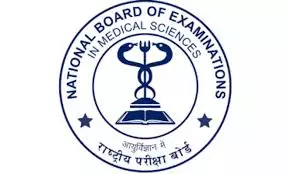Students Tap Into AI For NEET-PG
AI to assist in their exam preparation is catching up among NEET-PG aspirants

Hyderabad: The trend of tapping into the power of artificial intelligence (AI) to assist in their exam preparation is catching up among NEET-PG aspirants. A significant number of the users said it helped in reducing exam stress and identifying knowledge gaps.
While ChatGPT is the most popular choice, which is more or less used as a search engine for resolving quick queries, other tools are also gaining traction among students. They mentioned using AI-powered flashcards like Anki, study platforms like Osmosis Medicine, AI-generated practice questions, PPT Generator, and tools for analysing exam papers and lab reports.
In most cases, it is primarily used to understand complex concepts, clarify doubts, generate flashcards for memorisation, take quizzes, and create study schedules for better time management. Most importantly, students said it helps reduce exam stress.
Recently, the National Board of Examination for Medical Sciences announced that the National Eligibility-cum-Entrance Test (NEET) for postgraduate courses will be conducted on August 3.
"Using AI mainly helped to reduce the time of preparation before exams. I used AI to make personalised notes which decreased my prep time and helped me revise the portion multiple times, helping in better retention," said Karuna from a private medical college in the city.
"We get to gain much more knowledge in a very short duration of time. Seeking knowledge from a gadget definitely keeps me concentrated for a much longer time than physically studying," said a student from Osmania Medical College.
"I personally use AI only to plan my day and for recommendations on research topics. I also ask AI to give me tips for retention," said Srijanjali Balagoni, a third year MBBS student from Hyderabad.
"AI tools are certainly becoming popular. Many students would prefer to use ChatGPT for quick queries rather than wait for a teacher to answer them. This has reduced teacher-student interactions significantly," said Sama Sravan Reddy, a medical intern from Suryapet.
Some students pointed out that using technology for exam preparation was “somewhat effective” but comes with limitations. "AI tools need to be used with caution as the information is not reliable most of the time. A healthy balance between reading books and using AI for practice is needed," said Sravan.
While many reported better understanding and retention of complex topics, students also pointed out overreliance on AI, reduced independent learning, and limited access to high-quality databases as common concerns. Many felt AI lacked personalised feedback.
"There is no benefit using AI tools because answers are not accurate as per the needs of medical students and sometimes do not match with the textbooks," said one third-year student from Warangal.
Some students also said they could not use these tools much as they faced difficulty navigating the platforms.
When asked what improvements they hoped to see, students said they wanted more personalised study plans, clinical case simulations, AI-generated mock exams, and real-time feedback on practice questions. Peer-learning forums were also a popular demand.

